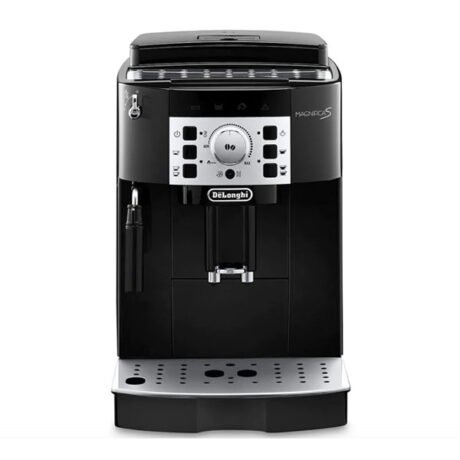Are you a Coffee bean Exporter or Importer? In the realm of international trade, the Harmonized System (HS) Code plays a crucial role in the classification of goods. Developed by the World Customs Organization (WCO), the HS Code is a standardized numerical method used globally to categorize products traded across borders. This system facilitates international trade by providing a common language for customs authorities, importers, and exporters.
Understanding the HS Code for coffee beans is particularly important for businesses involved in the coffee trade. Coffee is one of the most widely traded commodities in the world, and accurate classification is essential for compliance with trade regulations, tariff applications, and customs procedures.
Table of Contents
HS Codes for Coffee Beans
The classification of coffee beans under the Harmonized System is primarily found in HS Code 0901. This code encompasses various forms of coffee, distinguishing between roasted and unroasted beans, as well as decaffeinated options. Understanding these specific subcategories is essential for accurate classification and compliance with international trade regulations.
A. Overview of HS Code 0901
- Coffee, not roasted: This category includes green coffee beans that have not undergone any roasting process. These beans are typically used for further processing or roasting before consumption.
- Coffee, roasted: This category includes coffee beans that have been roasted, which is a critical step in developing the flavor and aroma of coffee.
B. Specific Subcategories
- 0901.11: Coffee, not roasted, whether or not decaffeinated
- This subcategory includes green coffee beans that may or may not have undergone the decaffeination process.
- 0901.12: Coffee, roasted, whether or not decaffeinated
- This includes roasted coffee beans, which can also be decaffeinated or regular.
- 0901.21: Coffee, not roasted, decaffeinated
- This specifically refers to green coffee beans that have been decaffeinated before roasting.
- 0901.22: Coffee, roasted, decaffeinated
- This subcategory includes roasted coffee beans that have had the caffeine removed.
- 0901.90: Other coffee-related products
- This code covers additional coffee products, such as coffee husks and skins, which may not fit into the primary categories.
Accurate classification under these HS Codes is vital for businesses involved in the coffee trade, as it affects tariffs, compliance, and market access.
C. HS Code for Luwak Coffee
Luwak coffee, also known as civet coffee, is a unique and premium coffee product that undergoes a distinct processing method. The beans are digested and excreted by the Asian palm civet (luwak), which contributes to the coffee’s unique flavor profile. Due to this unique processing method, the HS Code classification for luwak coffee may differ slightly from standard coffee beans.
- Green Luwak Coffee Beans:
- For unroasted luwak coffee beans, the classification would typically fall under HS Code 0901.11 (Coffee, not roasted, whether or not decaffeinated). However, it is essential to specify that these are luwak coffee beans to ensure proper classification and understanding of the product’s unique nature.
- Roasted Luwak Coffee Beans:
- For roasted luwak coffee beans, the appropriate classification would generally be HS Code 0901.12 (Coffee, roasted, whether or not decaffeinated). Again, it is crucial to indicate that these are luwak coffee beans to differentiate them from regular roasted coffee.
While the primary HS Codes for luwak coffee may align with those for standard coffee beans, the unique processing method and premium nature of luwak coffee may warrant additional documentation or clarification during customs clearance to ensure proper classification and compliance.
Importance of Correct HS Code Classification
Accurate classification of coffee beans, including luwak coffee, under the appropriate HS Codes is vital for several reasons. Misclassification can lead to significant consequences, impacting trade operations, compliance, and overall business success.
A. Trade and Tariffs
Understanding the correct HS Code is essential for determining applicable tariffs and duties. Different HS Codes often have varying tariff rates, which can significantly affect the cost of importing or exporting coffee. Accurate classification ensures that businesses are not overpaying or underpaying tariffs, which can impact pricing strategies and profitability.
B. Customs Clearance
Customs authorities rely on HS Codes to process shipments efficiently. Accurate classification is crucial for smooth customs clearance. If a shipment is misclassified, it may be flagged for inspection, leading to delays and potential complications in the supply chain. This can disrupt delivery schedules and affect customer satisfaction.
C. Market Research and Analysis
Businesses can leverage HS Codes to analyze trade data and market trends. By understanding the classification of their products, companies can gain insights into demand, competition, and pricing strategies in different markets. This information is invaluable for making informed business decisions and identifying growth opportunities.
D. Regulatory Compliance
Different countries have specific regulations regarding the import and export of coffee products. Using the correct HS Code ensures compliance with these regulations, reducing the risk of legal issues. Non-compliance can lead to fines, penalties, or even the seizure of goods, which can have severe financial implications.
E. Supply Chain Management
Accurate HS Codes facilitate better supply chain management by providing clarity on product classification. This clarity is crucial for inventory management, logistics, and distribution. Proper classification helps businesses streamline their operations and reduce the risk of errors in shipping and handling.
F. International Agreements
HS Codes are often referenced in international trade agreements. Understanding these codes can help businesses take advantage of preferential trade agreements, which may offer reduced tariffs or other benefits. Proper classification ensures that companies can fully leverage these opportunities.
G. Statistical Analysis
Governments and organizations use HS Codes for statistical purposes, such as tracking trade flows and conducting economic analysis. Accurate classification contributes to reliable data collection, which can influence policy decisions and economic strategies. Businesses that provide accurate data can also benefit from better insights into market conditions.
Consequences of Incorrect HS Code Classification
Misclassifying coffee beans can lead to a range of serious consequences that can impact businesses financially and operationally. Understanding these potential pitfalls is crucial for anyone involved in the import or export of coffee products.
A. Customs Delays and Issues
When the HS Code does not match the product description, customs authorities may flag the shipment for inspection. This can lead to significant delays in clearance, causing disruptions in the supply chain. Delays can result in missed delivery deadlines, affecting customer relationships and potentially leading to lost sales.
B. Fines and Penalties
Misclassification can result in fines or penalties imposed by customs authorities. These financial repercussions can be substantial, especially for larger shipments. Businesses may face additional costs that can erode profit margins and impact overall financial health.
C. Incorrect Tariff Application
Different HS Codes often have different tariff rates. If, for example, green coffee beans (which may have lower tariffs) are incorrectly classified as roasted coffee beans (which may have higher tariffs), the importer could end up paying more in duties than necessary. This miscalculation can lead to unexpected costs and affect pricing strategies.
D. Legal Consequences
In some jurisdictions, misclassification can be considered a violation of trade laws, potentially leading to legal action against the importer or exporter. Legal issues can be costly and time-consuming, diverting resources away from core business activities.
E. Loss of Trust and Reputation
Frequent errors in classification can damage a company’s reputation with customs authorities and trading partners. A history of misclassification can lead to increased scrutiny of future shipments, complicating trade relationships and potentially harming business prospects.
F. Inventory and Accounting Issues
Misclassification can lead to discrepancies in inventory records and accounting. This can complicate financial reporting and analysis, making it difficult for businesses to track performance accurately. Inaccurate data can hinder decision-making and strategic planning.
G. Product Recalls or Returns
If misclassification leads to a violation of food safety or quality regulations, it could result in product recalls or returns. This not only incurs additional costs but can also damage a brand’s reputation and consumer trust.
H. Impact on Market Access
Some markets have specific regulations regarding the importation of roasted versus unroasted coffee. Misclassification could lead to restrictions or bans on accessing certain markets, limiting growth opportunities and market expansion.
Conclusion
In conclusion, understanding and accurately classifying HS Codes for coffee beans is essential for businesses engaged in international trade. The Harmonized System provides a standardized framework that facilitates trade, ensures compliance with regulations, and helps manage tariffs effectively.
The importance of correct HS Code classification cannot be overstated. It impacts various aspects of trade, including customs clearance, tariff applications, market research, and regulatory compliance. Misclassification can lead to significant consequences, such as customs delays, fines, legal issues, and damage to a company’s reputation.
To mitigate these risks, businesses should invest in training and resources to ensure that their staff is knowledgeable about HS Codes and the specific requirements for coffee products. Additionally, maintaining clear documentation and communication with customs authorities can help streamline the classification process and avoid potential pitfalls.
Ultimately, accurate HS Code classification is not just a regulatory requirement; it is a critical component of successful international trade strategy. By prioritizing proper classification, businesses can enhance their operational efficiency, reduce costs, and position themselves for growth in the competitive global coffee market.
Interested in Indonesian coffee beans? check our green coffee beans product. Contact us at info@specialtycoffee.id or WhatsApp to place your order.





